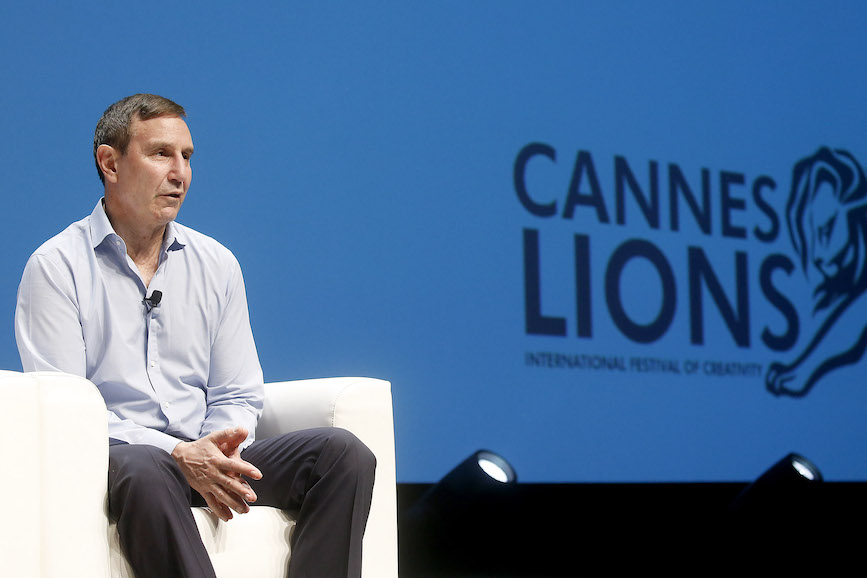Richard Edelman at the 2018 Cannes Lions International Festival of Creativity. (Photo credit: Getty Images).
by Aleda Stam
Source: www.prweek.com, June 2021
“The definition of brand relevance goes far beyond reflecting culture now,” says Richard Edelman.
CHICAGO: Consumers are prioritizing trust in brands over love for brands, and they’re realizing the power they have in compelling companies to be agents of societal change.
The 2021 Edelman Trust Barometer Special Report Trust: The New Brand Equity, which was revealed during the 2021 Cannes Lions International Festival of Creativity on Wednesday, reveals consumers expect more from brands than ever before. According to the study, respondents said brands are more culturally relevant if they reflect societal values (38%), meet a new societal need (33%) and change social interactions for the better (32%).
“The definition of brand relevance goes far beyond reflecting culture now,” said Edelman CEO Richard Edelman. “It’s now a demand: change the culture, and if you do that, I will reward you.”
When brands don’t meet expectations of their stakeholders, consumers said they have the power to force change, with 63% saying they can compel a brand to change almost anything about itself.
The study also found 78% said their influence extends beyond the consumer experience to business operations, including 39% saying they can ensure materials are environmentally friendly, 27% that they can get a CEO to speak out on an important issue and 25% saying they can get rid of a CEO if they disapprove of their actions.
This is an opportunity for brands to see there’s a new playing field, said Jackie Cooper, who was named Edelman’s chief brand officer in March.
“Brands can now have the confidence to stand for something and know that it might not be beloved by everybody, but the data shows that standing for something builds trust,” Cooper said. “And if you build your trust, your purpose and your advocacy, the sales grow.”
The progression to such consumer-demanded brand activism began around 2017, when politics, populism and nationalism started coming to the fore and brands were thrust into debates about trade issues and societal values, according to Edelman.
Brands started to get involved in politics in some cases, not of their own choosing but because consumers had different expectations and began exercising what Edelman calls “belief-driven buying or brand democracy.”
Then the pandemic hit.
“There was a different set of needs, and the brand became the savior, coming out with products that would keep consumers safe and make sure employees had protective equipment,” Edelman said.
Consumers are also more closely aligning brands and the companies that own them. The study found that 40% of middle-income consumers and 50% of high-income consumers said they would no longer buy from a brand because they do not trust the company that owns it.
“If you don’t do well in the mothership, then consumers will say they’re leaving your brand,” Cooper said. “Companies need to make sure that’s through-the-line authentic.”
Other key findings from the study:
-
More than two-thirds of respondents (63%) are more attracted to brands focused on making the world a better place;
-
Most consumers avoid brands from the following countries based on their attributes and behaviors: China (78%), India (74%), Brazil (69%), Mexico (66%) and the U.S. (59%)
-
More than half of consumers (54%) expect brands to issue a public statement on social media regarding their position on a major news event within two or three days and 51% expect their CEO to publicly speak out about the issue or event within the same time period.
-
Brands must balance peer and expert voices, with 57% of consumers viewing academic experts as most credible when discussing the quality or value of the brand and 57% viewing a person like themselves most credible when discussing the lifestyle or fit of the brand.
The Trust Barometer surveyed 14,000 people in 14 markets: Brazil, Canada, China, France, Germany, India, Japan, Mexico, Saudi Arabia, South Africa, South Korea, the U.A.E., the U.K. and the U.S.

